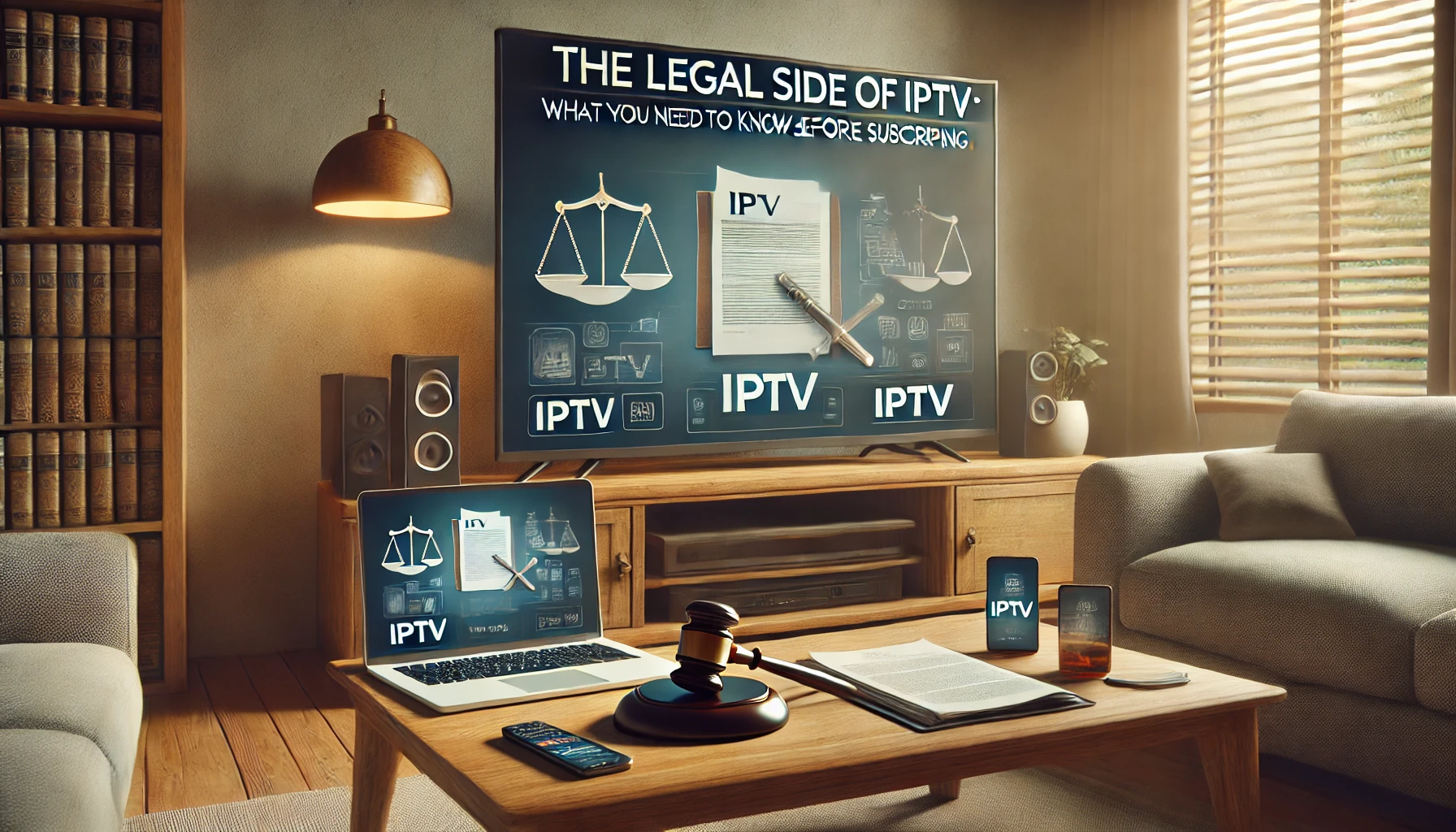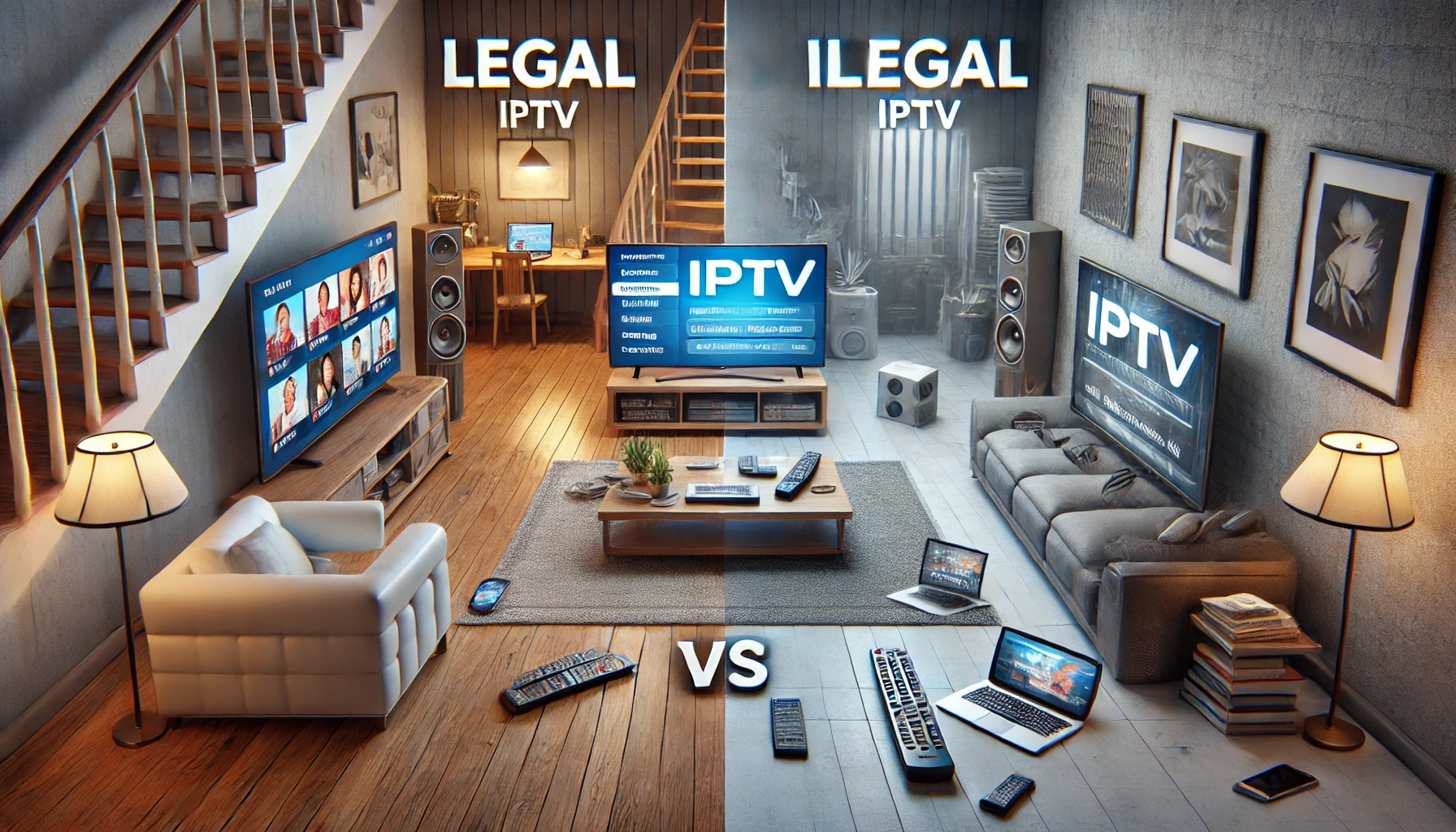- mypremiumiptv
- Blog
- The Legal Side of IPTV: What You Need to Know Before Subscribing
The Legal Side of IPTV: What You Need to Know Before Subscribing
The Legal Side of IPTV: What You Need to Know Before Subscribing

The Legal Side of IPTV: What You Need to Know Before Subscribing
Table of Contents
- Introduction
- What is IPTV?
- Legal vs. Illegal IPTV Services
- The Risks of Using Illegal IPTV Services
- How to Identify a Legal IPTV Service
- How Governments Are Cracking Down on Illegal IPTV Services
- Legal Alternatives to IPTV Services
- FAQs About IPTV
- Conclusion
Introduction
In today’s digital world, IPTV (Internet Protocol Television) is a modern alternative to traditional cable and satellite TV. Offering flexibility, affordability, and a wide variety of content, IPTV has attracted millions of users. But not all IPTV services are created equally, and some operate illegally, putting users at risk. This blog will break down the legal side of IPTV and what you should know before subscribing to a service.
For premium, legal IPTV services, visit mypremiumiptv.com.
What is IPTV?
IPTV refers to delivering television and video content over an internet protocol (IP) network, rather than through traditional broadcast methods. IPTV services typically fall into three main categories:
- Live IPTV: Streaming of live TV channels (news, sports, etc.) in real-time.
- Video on Demand (VOD): Access to movies, shows, and other content at any time.
- Time-Shifted IPTV (Catch-Up TV): The ability to re-watch live TV shows broadcasted earlier.
IPTV services provide users with more control, allowing them to watch content when and where they choose.

Legal vs. Illegal IPTV Services
Understanding the difference between legal and illegal IPTV services is crucial:
- Legal IPTV: Licensed by the content creators or networks to distribute content. Examples include Hulu Live, YouTube TV, Sling TV, etc. These services respect copyright laws.
- Illegal IPTV: Operates without broadcasting licenses, typically offering premium channels, movies, or live TV at suspiciously low costs. Users may unknowingly subscribe to these services, which violate copyright laws.
The Risks of Using Illegal IPTV Services
Legal Consequences
Illegal IPTV services violate copyright laws. Some countries, like the UK and USA, have taken stringent actions against individuals and providers involved in illegal streaming. This could lead to:
- Fines
- Legal notices
- Potential jail time in extreme cases
For example, in 2020, a major crackdown in the UK saw several illegal IPTV providers fined and shut down.
Data Privacy Risks
Illegal IPTV providers often operate in the dark, with little to no regard for user data privacy. Subscribing to such services might expose sensitive personal and financial information to hackers or scammers.
Poor Service Quality
Illegal IPTV services often lack the necessary infrastructure to provide stable streaming. Users may experience:
- Constant buffering
- Server crashes
- Inconsistent content availability
Without legitimate customer support, fixing these issues becomes almost impossible.
Malware and Viruses
Illegal IPTV services may require users to download apps or software from untrusted sources. These files can be laced with malware or viruses that could harm your device or steal sensitive information.
How to Identify a Legal IPTV Service
Here are key ways to ensure you're subscribing to a legitimate IPTV service:
- Check for Licensing Information: Legal services provide clear information about content licensing. They are transparent about which channels and media they have the rights to broadcast.
- Research the Provider: Look for reviews from trusted sources or user communities to verify whether the service is reputable.
- Price Comparison: If a service offers premium channels and movies at a very low cost (e.g., $5 per month), it’s a red flag. Legal IPTV services are more expensive due to licensing fees.
- Trial Periods: Legal services usually offer free trials or money-back guarantees, giving users a risk-free way to test the service before subscribing.
For a reliable IPTV service, visit mypremiumiptv.com.
How Governments Are Cracking Down on Illegal IPTV Services
Governments around the world are collaborating with ISPs and content owners to crack down on illegal IPTV services. In 2020, Operation 404, a joint effort between the Brazilian government and international agencies, led to the shutdown of several major IPTV piracy operations. Many illegal IPTV platforms have been taken offline, and users have faced legal repercussions.
ISPs in several countries have been compelled to block access to known illegal IPTV services, limiting their reach.
Legal Alternatives to IPTV Services
- Subscription-Based IPTV: Services like Netflix, Disney+, Hulu, and Amazon Prime offer legal on-demand streaming.
- Live Streaming Services: Options like YouTube TV, Hulu Live, and Sling TV allow you to watch live TV legally.
- Hybrid Services: Platforms like Peacock and Pluto TV offer a mix of free and premium content, supported by ads.
FAQs About IPTV
1. Is IPTV legal?
Yes, IPTV is legal when the service provider has the appropriate licenses to stream or broadcast content. Always choose IPTV services that operate within copyright laws.
2. Can I get in trouble for using illegal IPTV services?
Yes. Users of illegal IPTV services may face fines or legal notices in some countries. It’s important to ensure your IPTV provider is legitimate.
3. How do I know if an IPTV service is legal?
Look for transparency regarding content licensing, read user reviews, and avoid suspiciously cheap services. Legitimate IPTV services usually offer trial periods and customer support.
4. Are there free IPTV services?
Yes, there are free legal IPTV services like Pluto TV and Peacock. However, premium content will usually require a paid subscription.
5. What are the risks of illegal IPTV services?
Using illegal IPTV services can expose you to legal issues, data theft, malware, and poor streaming quality.
Conclusion
Subscribing to a legal IPTV service ensures that you can enjoy your favorite shows, movies, and live sports without the risks associated with piracy. Before signing up, always make sure the provider is operating legally, and protect yourself from potential legal and security issues. By choosing the right IPTV service, you can enjoy high-quality streaming with peace of mind.
For premium and legal IPTV services, visit mypremiumiptv.com.

Quick links
Services
2024 © MYPREMIUMIPTV. All Rights Reserved.

